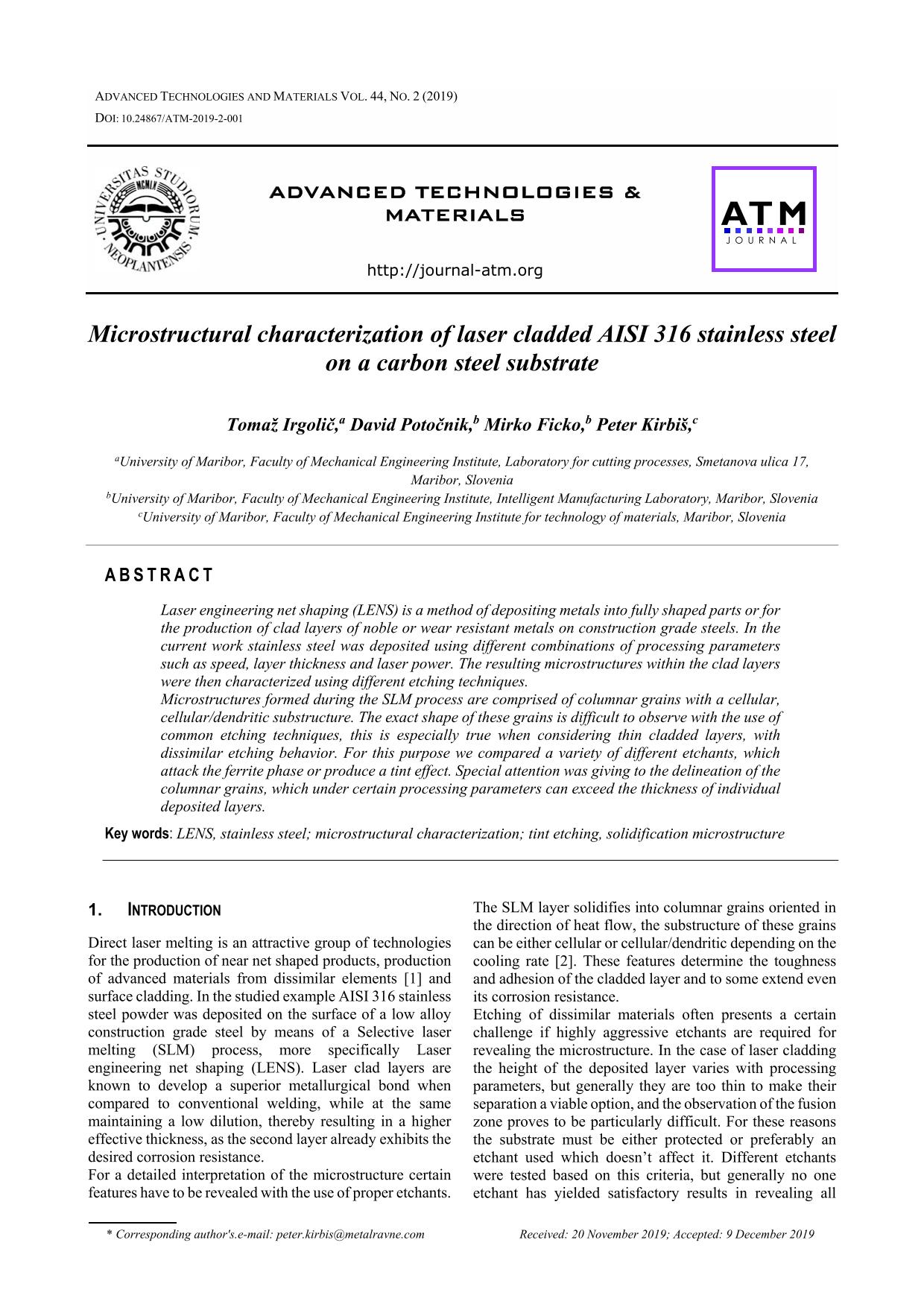Microstructural characterization of laser cladded AISI 316 stainless steel on a carbon steel substrate

Published 2023-09-30
abstract views: 64 // Full text article (PDF): 22
Keywords
- LENS,
- stainless steel,
- microstructural characterization,
- tint etching,
- solidification microstructure
How to Cite

This work is licensed under a Creative Commons Attribution 4.0 International License.
Abstract
Laser engineering net shaping (LENS) is a method of depositing metals into fully shaped parts or for the production of clad layers of noble or wear resistant metals on construction grade steels. In the current work stainless steel was deposited using different combinations of processing parameters such as speed, layer thickness and laser power. The resulting microstructures within the clad layers were then characterized using different etching techniques. Microstructures formed during the SLM process are comprised of columnar grains with a cellular, cellular/dendritic substructure. The exact shape of these grains is difficult to observe with the use of common etching techniques, this is especially true when considering thin cladded layers, with dissimilar etching behavior. For this purpose we compared a variety of different etchants, which attack the ferrite phase or produce a tint effect. Special attention was giving to the delineation of the columnar grains, which under certain processing parameters can exceed the thickness of individual deposited layers.

